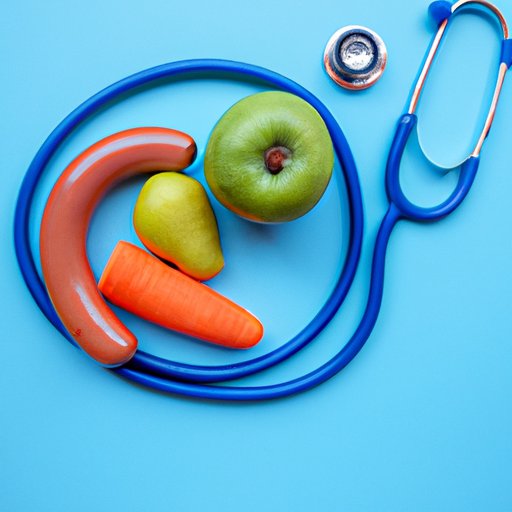
I. Introduction
Diverticulitis is a common condition that affects the digestive system, causing inflammation and discomfort. It occurs when small pouches, known as diverticula, form in the colon and become infected or inflamed. In this article, we will explore the most effective ways to treat diverticulitis and manage its symptoms.
II. Understanding the Causes of Diverticulitis: A Comprehensive Guide
Before exploring treatment options, it is important to understand what causes diverticulitis. Diverticulosis is the condition that precedes diverticulitis, characterized by the formation of diverticula in the colon. Diverticulitis occurs when these pouches become infected or inflamed. The exact causes of diverticulitis are not yet fully understood, but researchers believe that a combination of factors, including aging, genetics, and a low-fiber diet, may contribute to the condition. Common risk factors for developing diverticulitis include obesity, smoking, and lack of physical exercise. Symptoms of diverticulitis may vary, but typically include abdominal pain, constipation or diarrhea, fever, and nausea.
III. Treating Diverticulitis with Diet and Lifestyle Changes: What Works and What Doesn’t
One of the most effective ways to manage diverticulitis is through changes in diet and lifestyle. A diet high in fiber can help alleviate symptoms and prevent flare-ups, as it promotes bowel regularity and prevents constipation. Foods rich in fiber, such as whole grains, fruits, vegetables, and legumes, are recommended for those with diverticulitis. Additionally, staying hydrated and reducing stress are important lifestyle changes for treating and managing the condition. It is also important to avoid foods that can trigger a flare-up, such as fatty or processed foods, alcohol, and caffeine.
IV. Medications for Diverticulitis: How They Work and What to Expect
While diet and lifestyle changes can be effective, in some cases, medication may be necessary to manage diverticulitis symptoms. Common types of medications used to treat diverticulitis include antibiotics to fight infections, pain relievers for abdominal pain, and drugs to alleviate inflammation. It is important to understand the benefits and risks of medication treatment, as some medications may cause side effects and interact with other medications.
V. The Role of Surgery in Treating Diverticulitis: When Is It Necessary?
In severe cases of diverticulitis, surgery may be necessary to remove the inflamed or infected section of the colon. This type of surgery, known as a colectomy, may also be necessary if the diverticula are causing other complications, such as bleeding or bowel obstruction. While surgery can be a daunting prospect, it is often necessary for those with severe or chronic diverticulitis. Recovery from diverticulitis surgery can take several weeks, and patients may require a temporary colostomy.
VI. Natural Remedies for Diverticulitis: Do They Actually Help?
Many people with diverticulitis turn to natural remedies as a way to manage their symptoms. Common types of natural remedies include probiotics, herbal supplements, and acupuncture. While there is limited scientific evidence to support the effectiveness of these remedies, some people find that they provide relief. It is important to discuss the use of natural remedies with a healthcare provider, as some remedies may interact with medication or exacerbate symptoms.
VII. Preventing Diverticulitis: Tips for Avoiding a Painful Flare-Up
Preventative measures are key to avoiding flare-ups of diverticulitis. Eating a high-fiber diet, staying hydrated, and avoiding risk factors such as smoking and obesity can help prevent diverticulitis from developing. Additionally, regular exercise and stress management can be effective preventative measures.
VIII. Coping with Diverticulitis: Strategies for Managing Symptoms and Improving Quality of Life
A diagnosis of diverticulitis can be stressful and disruptive to daily life. Coping strategies such as support groups, therapy, and mindfulness practices can help alleviate stress and improve quality of life. It is important for those with diverticulitis to work closely with a healthcare provider to manage symptoms and prevent complications.
IX. Conclusion
In conclusion, diverticulitis is a common condition that can be effectively managed with diet and lifestyle changes, medication, surgery, and natural remedies. By understanding the causes and risk factors of the condition, those with diverticulitis can take preventative measures to avoid flare-ups and improve overall health. It is important to work closely with a healthcare provider to develop a treatment plan that works best for individual needs.
If you are experiencing symptoms of diverticulitis, consult with a healthcare provider for diagnosis and treatment.





